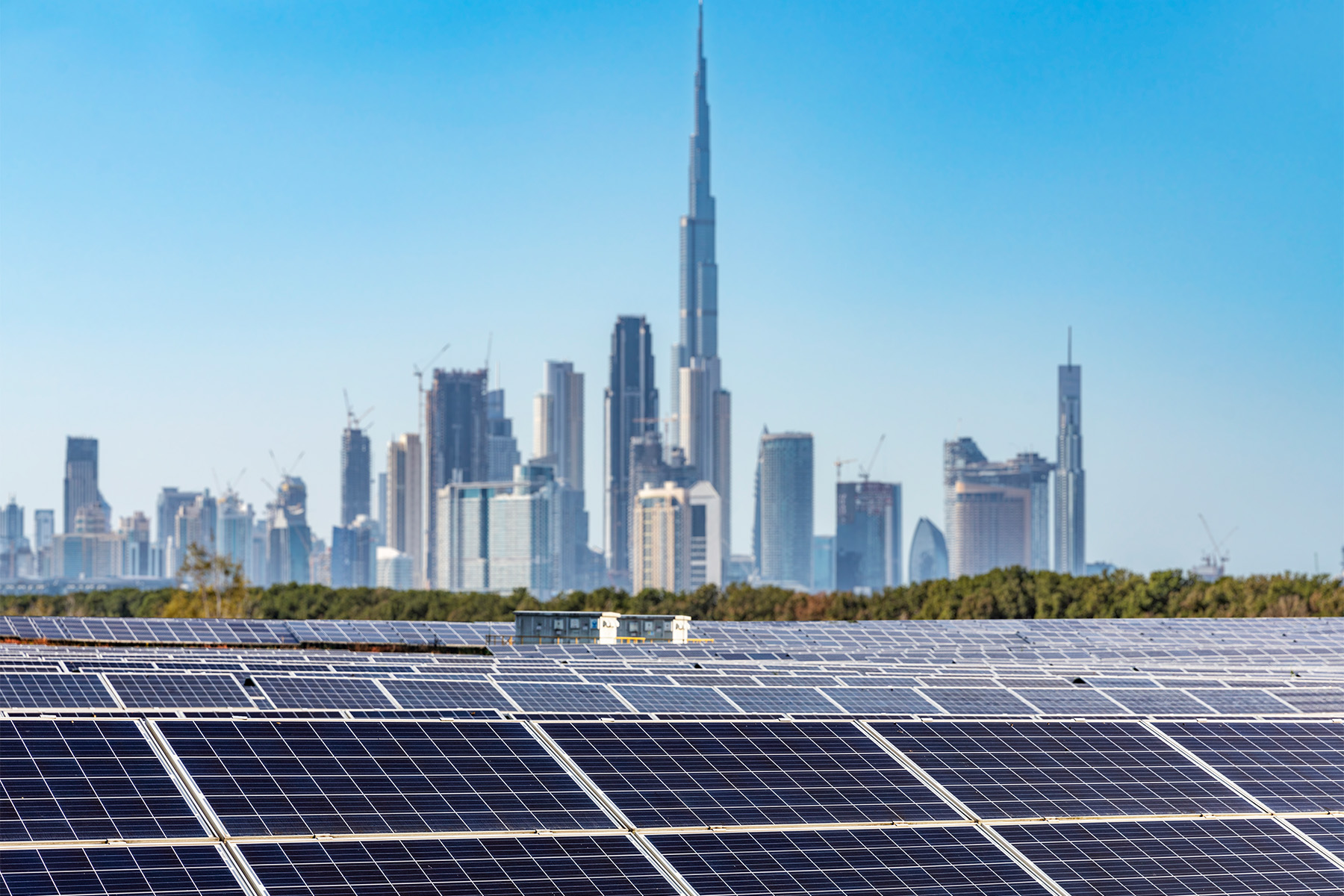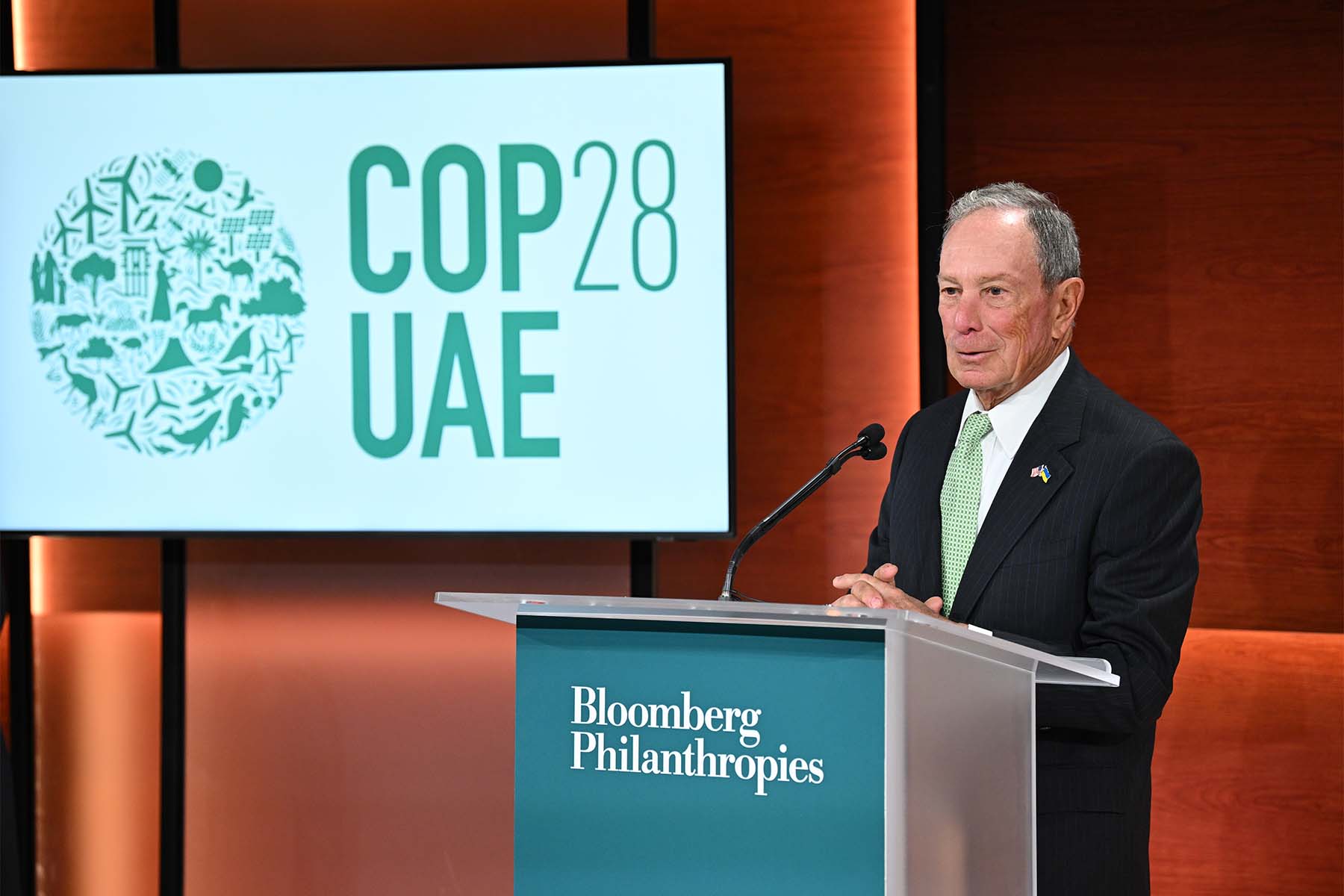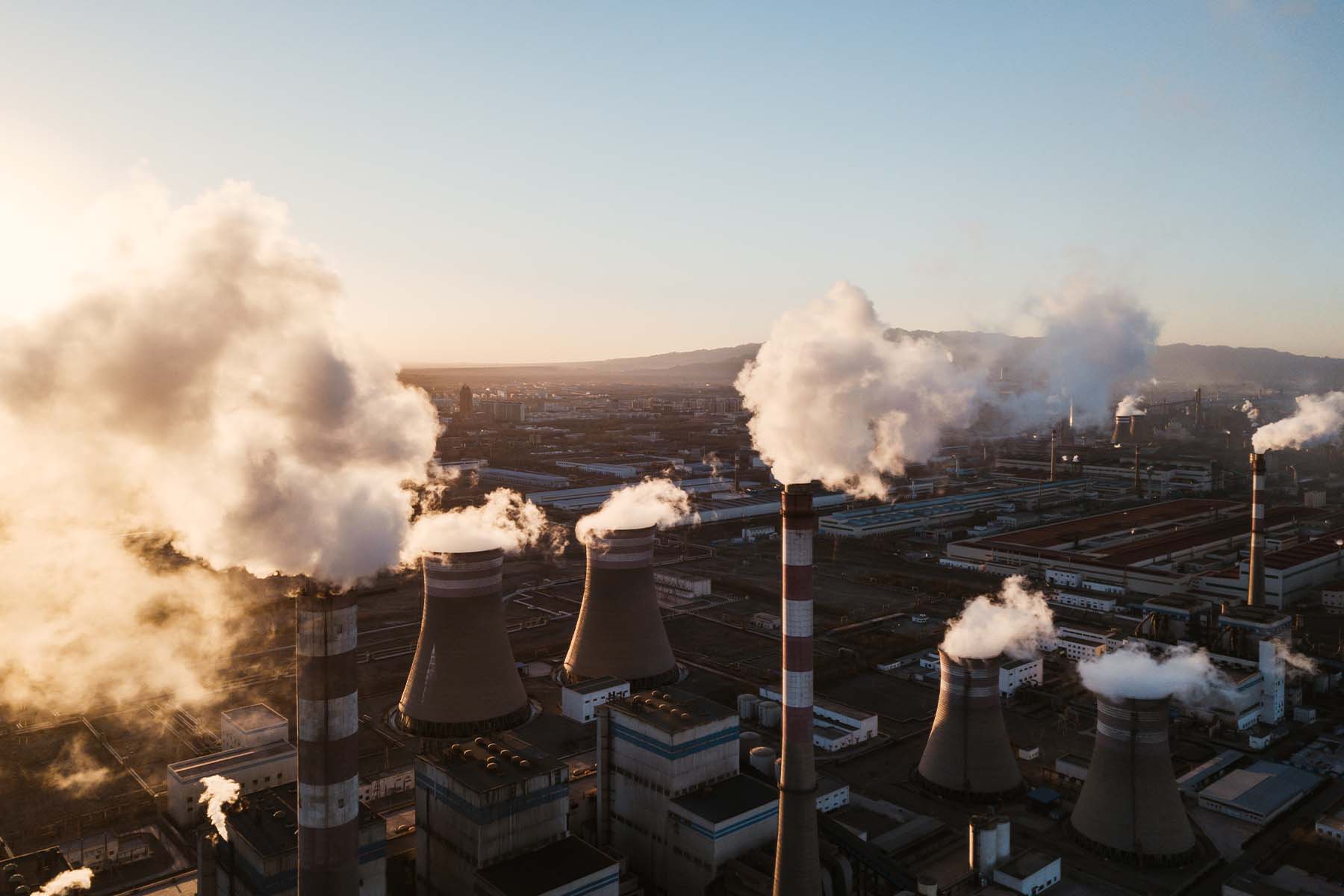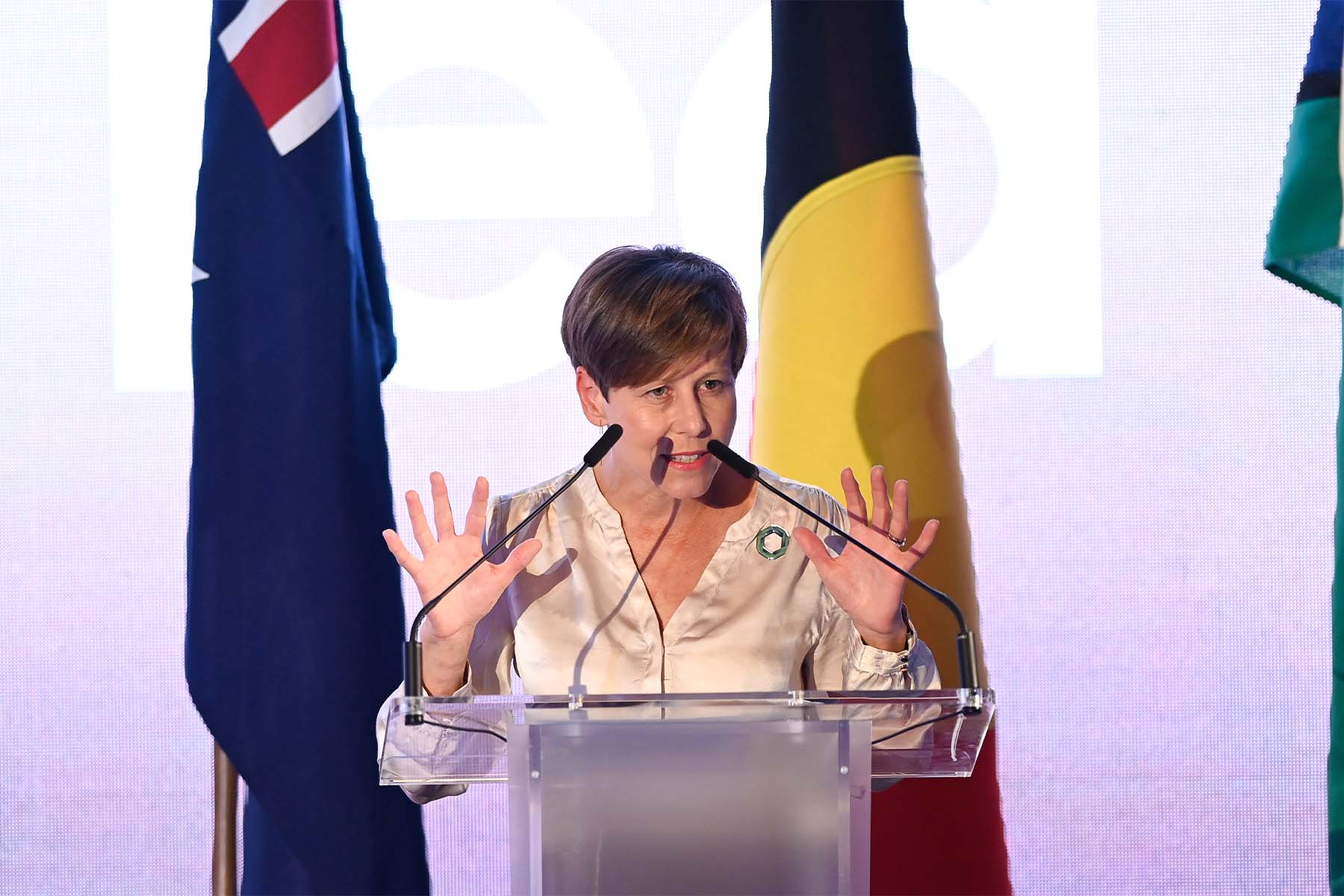
On the ground and hoping ambition triumphs at COP28

Director of Melbourne Climate Futures Professor Jacqueline Peel is in Dubai and hoping for positive progress towards achieving the Paris Agreement
Published 30 November 2023
Together with others from the Melbourne Climate Futures team at the University of Melbourne, I’m at the United Nations climate summit – COP28 – being held in Dubai, UAE between 30 November and 12 December.
These annual meetings always have a broad and complex agenda and this COP will be no exception.
The negotiations will be framed by the need for an urgent response to climate change with numerous warnings this year – from the IPCC and many others – that we are not on track globally to meet the Paris Agreement temperature goals and face a ‘hellish’ 3 degrees rise without ‘relentless’ action to cut greenhouse gas emissions.

What’s expected to happen at COP28 and will it really deliver more ambitious national policies to reduce emissions when its being hosted in one of the world’s largest oil producers? Here are some of the main things I’ll be watching for.
Greater ambition on mitigation from countries coming out of the global stocktake
The first global stocktake under the Paris Agreement concludes at COP28.

This is a collective progress assessment process that examines countries efforts to reduce emissions, improve adaptation and mobilise finance towards addressing climate change. A Technical Assessment Report released in September contained few surprises: countries are not on track to meet the Paris Agreement’s goals with current policy pledges.
The key question at COP28 will be whether this serves as a wake-up call for countries and prompts announcements for more ambitious pledges, due under the Paris Agreement by 2025.
For its part, Australia has new emissions data coming out in its second Annual Climate Change statement under the Climate Change Act that shows we are in much better shape than previously thought to meet our target of an emissions cut of 43 per cent below 2005 levels by 2030.
This is likely to increase pressure on the Australian government to raise its ambition for our 2035 target, taking account of the findings of the global stocktake.

A new framework for adaptation and operationalising loss and damage
Dealing with the impacts of climate change or adaptation, as well as responding to loss and damage from climate disasters, have always been the poor cousins of mitigation negotiations at COP meetings.
However, as these impacts and disasters are becoming more severe and frequent with a warming world, they are receiving greater focus in the negotiations.
At COP28 there will be a major stream of negotiations focused on adaptation that will seek to agree a new framework for measuring progress towards the Paris Agreement’s global goal on adaptation. This is a much more complex task than for emissions reduction given that adaptation efforts and needs are highly dependent on the local context.

Australia’s Assistant Climate Minister, Jenny McAllister, is co-chairing these negotiations which will give Australia an important role in steering the talks to a successful outcome. It’s likely adaptation finance – or the major gaps in delivering it at adequate levels – will be one of the big issues on the table.
The headline outcome from COP27 was countries’ agreement to establish a new fund for compensating developing countries who are particularly vulnerable to climate change for loss and damage they suffer from climate disasters. Throughout 2023, a Transitional Committee has worked on rules for operationalising the fund – its recommendations are being presented to COP28 for adoption.
The World Bank has been proposed as an interim host for the fund and it will be interesting to see if these new responsibilities prompt a greater climate awareness of the Bank in its lending operations.
Still unsettled and likely to create a lot of heat at COP28 is the question of which countries will contribute to the fund and how much.

Fossil fuel phase-out – maybe this time?
The Paris Agreement does not mention the main cause of climate change – burning fossil fuels – and it was only at COP26 in 2021 that language on phasing down coal was first adopted in the outcome document from the conference.
There is data and reports piling up to show just how little the world can afford continued fossil fuel expansion. Maybe COP28 in the UAE will be the (unlikely) setting for an agreement on phase down or maybe even phaseout of fossil fuels.
This would put major fossil fuel producing countries like Australia on the spot. The Australian government is arguing though that as a traditional fossil fuel economy dealing with the practical challenges of transition it has a lot to offer in charting a path forward here.

Agreement for an australia-pacific cop
For Australians and Pacific colleagues attending COP28, a key interest will be to see if there is any announcement on the success or otherwise of Australia’s bid to host an Australia-Pacific COP – COP31 – in 2026.
All signs are that Australia has the bid all but locked in.
If it is successful, it will be an important opportunity for Australia to demonstrate its commitment to ambitious climate action for the globe and for our vulnerable Indo-Pacific region.
Banner: Getty Images
